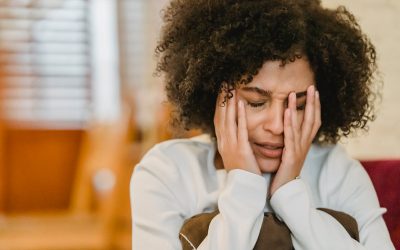Have you noticed more and more hair fall out of your scalp? Has the condition gotten worse over a short period of time? It can be scary to wake up one day losing clumps of hair and developing bald patches for no apparent reason. But knowing what condition might be causing it is the first step in understanding how to deal with it.
One of the most common reasons behind the sudden appearance of bald patches or severe hair loss is alopecia areata. In this article, we take a closer look at alopecia areata treatments in Dublin, specifically the best one for you and where to get it.
Alopecia Areata: A Brief Overview
Alopecia areata or AA is classified as an autoimmune disease that causes hair loss on the scalp and other areas of the body. Hair loss can result in small hairless patches to complete baldness.
In this condition, the immune system attacks the hair follicles and causes them to die prematurely. It used to be thought that such hair loss was caused by anxiety or stress, but most scientists now agree that a self-destructive T-cell attack on hair follicles is the cause.
Experts believe that the number of people affected by this hair loss condition ranges from 1 in 1000 to 2 in 100. But the truth is that it’s difficult to know how many people have alopecia areata because some do not seek treatment or even realise they have it until they notice their hair loss.
It equally affects both men and women, but in the older age group, it tends to be more prevalent in women. Furthermore, while it can develop at any age, it is more common amongst teens.
Here are some of the signs and symptoms of alopecia areata:
- Sudden loss of hair in patches on the scalp or other areas of your body like the beard
- Thinning hair on the scalp, which may be accompanied by dry skin
- Hair loss that affects specific areas (such as around the ear or eyebrows)
- Bald patches that are round or oval in shape not larger than 2 inches wide by 2 inches long
- Hair bumps (also called “exclamation points”) where follicles used to be located (these appear as small bumps under the skin)
- White scales on your scalp or other parts of your body
- Folliculitis (inflammation of the hair follicle)
- Affected areas may be scaly or red
- Excessive itching in affected areas
- Painful bumps along the edges of bald areas
- Patchy or fine hair growth on the scalp
Alopecia areata is not contagious and isn’t considered dangerous or life-threatening. But it can be uncomfortable, embarrassing, and upsetting because it’s so visible.
Can You Stop Alopecia Areata From Spreading?
It is worth mentioning that alopecia areata is an unpredictable, cyclical condition. People may experience a period of hair loss followed by hair growth. When it recurs, the episode can either be mild or severe.
Truth be told, so much is still not known about this condition. This fact and the unpredictable nature of AA make it challenging to prevent it from recurring or spreading. To add, there is still no cure for alopecia areata. However, treatments are available to manage the condition and help sufferers grow back their hair.
What Are the Common Alopecia Areata Treatments in Dublin?
Some of the commonly recommended treatments for alopecia areata include oral medications, topical treatments and injectables, and platelet-rich plasma therapy. Often, hair and scalp specialists also include dietary and lifestyle changes in the overall treatment plans of their patients.
Oral Medications
Oral medications are often used to treat mild cases of alopecia areata. They are also often the first line of treatment for AA. They are meant to stop what’s happening from within, specifically the immune system’s attack on the follicles.
These include corticosteroids and immunosuppressants. Corticosteroids work by reducing inflammation and suppressing the immune system. Immunosuppressants help prevent the body from producing antibodies that attack hair follicles on the scalp.
Topical Treatments & Injectables
Topical medications and injectables used to treat alopecia areata are similar to oral medications. They stop the immune system from attacking the body, slow down or stop hair loss, and promote growth.
Topical treatments include steroid creams, which reduce inflammation around hair follicles. Contact immunotherapy is also included under this category. It is one of the oldest and most effective treatments for AA, with 70% of patients reporting hair growth after using it.
Another noteworthy topical treatment is a medication that is clinically proven to promote hair growth. The hair loss medication works by promoting increased blood flow around the follicles, which in return stimulates hair growth.
Sometimes, some medications are injected instead of applied topically. For example, corticosteroids can be injected directly into affected areas of your body to stimulate the growth of new hair follicles or reduce inflammation around existing ones. This treatment is only used for mild cases and requires several rounds of injections.
Platelet-Rich Plasma (PRP) Therapy
PRP is a relatively new treatment that’s been used to successfully treat issues like baldness and burns without having to resort to surgery or other invasive methods.
It works by taking your blood and extracting the platelets, which are rich in growth factors that can help with tissue repair. The extracted platelets are then injected into the area where they are needed to stimulate hair growth and strengthen existing hair follicles.
The results can be dramatic: many people who undergo PRP treatment for alopecia areata report seeing new hair growth within several weeks of their first session. But it does require multiple treatments to achieve the best results. It may also not be suitable for all patients because of its cost and complexity.
Dietary and Lifestyle Changes
Often, hair and scalp specialists tell their clients to make dietary and lifestyle changes while undergoing alopecia areata treatment. It is believed that having a healthy diet and lifestyle can prevent the progression of alopecia areata and promote healthy hair growth.
The changes may include the following:
- Eating a balanced diet and increasing your intake of food high in iron, zinc, magnesium, and vitamin B12 – nutrients that all play a part in hair health.
- Avoiding stress as much as possible as it is considered one of the triggers of alopecia areata.
- Exercising regularly helps reduce stress levels and increase blood flow throughout your body.
- Getting rid of vices, especially smoking or drinking alcohol excessively—both can make your hair loss worse.
How Do You Determine the Best Alopecia Areata Treatment for You?
As you can see, many different options are available for treating alopecia areata, but not all of them will be right for you. Some treatments may work for some people but not others.
Factors such as your age and the severity of your condition need to be considered to determine which treatment will benefit you the most. This requires working closely with a dermatologist or trichologist.
So, consult a hair and scalp specialist immediately if you suspect that you might have alopecia areata. Never treat the hair loss on your own, as doing so may worsen the condition.
Where to Get Treated for Alopecia Areata in Dublin?
If you’re wondering where the best place in Dublin is to get treated for alopecia areata, look no further than Universal Hair & Scalp Clinic. We have decades-long experience treating patients with alopecia areata and have helped thousands of people regain their confidence after losing their hair.
We understand that alopecia areata can be a very difficult condition to deal with, but it doesn’t have to be. We can help you find an effective treatment plan that works for your unique needs.
We offer confidential consultations at our clinic, where our hair and scalp specialist will diagnose your condition and recommend a treatment plan tailored specifically to your needs and budget. We will work with you every step of the way to ensure that your goals are met.
Having alopecia areata can be very difficult and finding the right treatment for you won’t be a walk in the park. But don’t lose hope because help is available. With the guidance of a hair and scalp specialist, you can successfully manage this condition, regrow your hair, and live confidently once again.
So, don’t wait! See a trichologist or dermatologist right away, as one of the keys to successfully addressing alopecia areata is getting early treatment.
Want to know what is the best alopecia areata treatment for you? Call us today on +353 (0)1 679 3618 or click here to schedule a consultation with our trichologist!
Royalty free image supplied from Pexels as part of SEO service from 3R.



